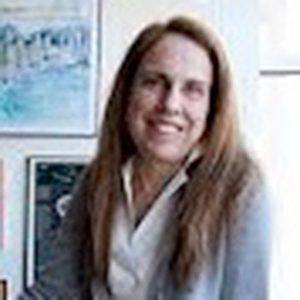Council
-

Alec Nielsen

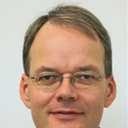
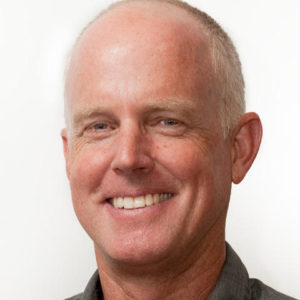
Michael Fero is a Co-Founder and CEO of TeselaGen Biotechnology Inc., a San Francisco based software company that has built Synthetic Evolution® – the AI driven operating system for synthetic biology. Michael received his Ph.D. in Physics from the University of California and contributed to the verification of the Standard Model at CERN and SLAC via the world’s most precise measurement of the Weinberg angle governing the coupling between the electromagnetic and weak interactions. Dr. Fero’s interest in biology led to a collaboration with Pat Brown and David Botstein at Stanford to build the world’s first human genome microarrays and do early research on expression level characterization of cancer cells. Dr. Fero then turned to systems biology where, in collaboration with Lucy Shapiro and Harley McAdams, he developed an automated high content diffraction limited microscopic screen of triply fluorescently tagged bacteria to better understand the bacterial cell cycle. Afterwards, Dr. Fero and two Stanford Shapiro/McAdams Lab colleagues started TeselaGen Biotechnology as a way to accelerate synthetic biology and the bio-based economy. Seeing a big deficiency in biologists’ ability to create what they imagine, TeselaGen focuses on making the mind to molecule process easier and faster with an AI driven, cloud-based enterprise platform for synthetic biology.
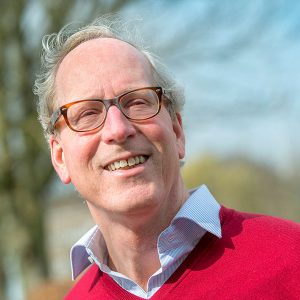
I am currently working on natural product discovery programs, yeast strains and enzymes that can convert agricultural residues into bioethanol and various microbial cell factory programs for more sustainable production of enzymes, biochemicals and natural products, such as antibiotics. Another aspect is the development of both traditional evolution and bioinformatics methods for fast screening and safe engineering of desired microbial cell factories. At the University of Groningen in the Netherlands, my projects focus on the development of new cell engineering methods for filamentous fungi, to accelerate the discovery of natural products for – among other things – new antibiotics.The aspect of my work that excites and inspires me the most is that Biotechnology can contribute in many ways to the big global societal challenges, as outlined by the UN Sustainable Development Goals, by addressing key technical challenges and that DSM is in the position to make a real contribution. The fast developments in the Biological Sciences are both a constant challenge and a source of inspiration, especially the increasing knowledge and technologies to characterize, understand and deploy microbial life. Another source of inspiration is the necessity to do so in a responsible manner, which requires good education, relevant stakeholder networks, clear communication and continuous learning.
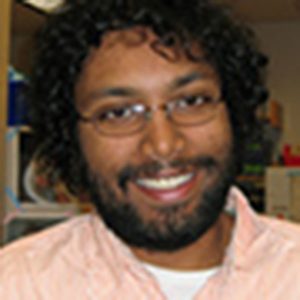
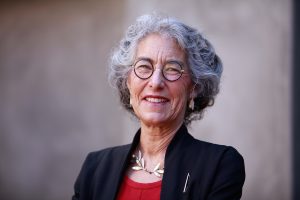
A leader in the field of religious studies with particular scholarly interest in bioethics and Jewish studies, Laurie Zoloth’s research explores religion and ethics, drawing from sources ranging from Biblical and Talmudic texts to postmodern Jewish philosophy, including the writings of Emmanuel Levinas. Her scholarship spans the ethics of genetic engineering, stem cell research, synthetic biology, social justice in health care, and how science and medicine are taught. She also researches the practices of interreligious dialogue, exploring how religion plays a role in public discussion and policy.
Zoloth is author of Health Care and the Ethics of Encounter: A Jewish Discussion of Social Justice and co-editor of five books, including Notes from a Narrow Ridge: Religion and Bioethics and Jews and Genes: The Genetic Future in Contemporary Jewish Thought.
Zoloth has been the president of the American Academy of Religion and the American Society for Bioethics and Humanities. She was the inaugural director of the Jewish Studies program at San Francisco State University and director of graduate studies in religious studies at Northwestern. She is an elected member of the Hastings Center and a life member of Clare Hall, University of Cambridge. She is a founding board member of the Society for Scriptural Reasoning.
Her work on bioethics and health care led her to serve on the NASA Advisory Council, the space agency’s highest civilian advisory board; the International Planetary Protection Committee; the National Recombinant DNA Advisory Board, and the executive committee of the International Society for Stem Cell Research. She served as chair of the first bioethics advisory board at the Howard Hughes Medical Research Institute and has testified in front of Congress, the President’s Commission on Bioethics, and state legislatures.
Zoloth began her career as a neonatal nurse working in impoverished communities; she holds a bachelor’s degree in women’s studies from the University of California, Berkeley and a bachelor’s degree in nursing from the University of the State of New York. She received a master’s degree in Jewish studies and a doctorate in social ethics from the Graduate Theological Union. Zoloth also holds a master’s degree in English from San Francisco State University.
Prior to joining the University of Chicago, Zoloth served as a Charles McCormick Deering Professor of Teaching Excellence at Northwestern University, holding appointments in the Department of Religious Studies in the Weinberg College of Arts and Sciences and in the Feinberg School of Medicine. At Northwestern, she was founding director of the Brady Program in Ethics and Civic Life at the Weinberg College of Arts and Sciences and founding director of the Center for Bioethics, Science and Society at the Feinberg School of Medicine.
She currently serves on the Ethics Advisory Board of NASA; the steering committee of The Engineering Biology Research Committee; on the CDC (Biological Agents Working Group); and on the Ethics Board of the American Heart Association.
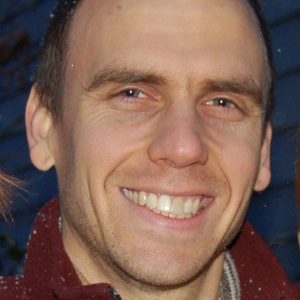
Michael Smanski is currently an Assistant Professor of Biochemistry, Molecular Biology, and Biophysics in the Biotechnology Institute at the University of Minnesota. He received his BS in Biochemistry from the University of California, San Diego and a PhD in Microbiology from the University of Wisconsin under the mentorship of Ben Shen. As an HHMI Postdoctoral Fellow of the Damon Runyon Cancer Research Foundation, he worked with Christopher Voigt in the Department of Biological Engineering at the Massachusetts Institute of Technology. He joined the faculty of the University of Minnesota in 2014. Throughout his career, Michael has studied and engineered multi-gene systems in bacteria. His group at UMN has developed a new platform for engineering ‘species-like’ barriers to sexual reproduction, and they are currently exploring applications for transgene biocontainment and the control of pest populations. Michael has been a member of EBRC since 2018 and has served on the EBRC Council from 2019-present.
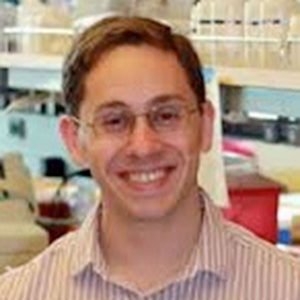
Prof. Howard Salis is an Associate Professor at Penn State University where his research lab focuses on the development & experimental validation of predictive biophysical models & design algorithms for rationally engineering synthetic organisms. Thousands of researchers have utilized these models & algorithms to design hundreds of thousands of synthetic DNA sequences for a wide variety of biotech applications. Prof. Salis received his Ph. D. in Chemical Engineering from the University of Minnesota and completed a postdoctoral fellowship at the University of California, San Francisco. He received the DARPA Young Faculty and the NSF Career Award. He is also the founder of a spin-off company, De Novo DNA, that has developed a web-based design platform for engineering organisms.
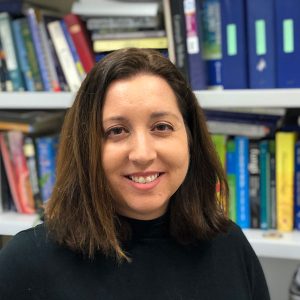
Michelle A. O’Malley is an Associate Professor in the Department of Chemical Engineering at the University of California, Santa Barbara. She earned a B.S. in Chemical Engineering and Biomedical Engineering from Carnegie Mellon University in 2004 and a PhD in Chemical Engineering from the University of Delaware in 2009, where she worked with Prof. Anne Robinson to engineer overproduction of membrane proteins in yeast. O’Malley was a USDA-NIFA postdoctoral fellow in the Department of Biology at MIT and the Broad Institute, where she developed new strategies for cellulosic biofuel production. At UCSB, her research group develops synthetic biology tools to engineer protein synthesis within anaerobes and microbial consortia for sustainable chemical production, bioremediation, and natural product discovery. O’Malley’s research has been featured on NPR’s Science Friday, the BBC Newshour, the LA Times, and several other media outlets. She was named one of the 35 Top Innovators Under 35 in the world by MIT Technology Review in 2015, and is the recipient of the Presidential Early Career Award for Scientists and Engineers (PECASE), a DOE Early Career Award, an NSF CAREER award, the Camille Dreyfus Teacher-Scholar Award, the ACS BIOT Division Young Investigator Award, the ACS PMSE Division Young Investigator Award, an ACS WCC “Rising Star” Award, and a Hellman Faculty Fellowship.
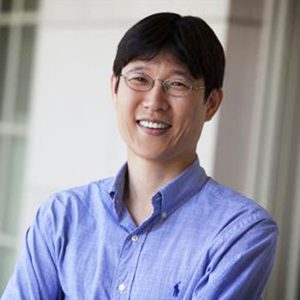
He has 24 years of research experience in chemistry, systems biology, and synthetic biology, including 5.5 years of industry experience (as of 2021). His research focus (2012-21; 15 grants; $7.3M external funding to him; $16M to the entire team) is understanding gene regulation, evolution, and metabolism, building sensors and genetic circuits, and engineering microbes to solve global problems, including climate crisis, waste valorization, plastic upcycling, sustainability, and health issues. He has published 52 papers, has filed 9 patents, and has given 51 invited and 118 contributed presentations. He has advised 26 PhD/Postdoctoral and 28 undergrad researchers. He is a Founder and Head of the SAB of Moonshot Bio. Several awards include a B&B Wang Award, an NSF CAREER award, an ONR YIP, a Sluder Fellowship (MIT), and the SNU President Prize. He is the Founding Chair of SynBYSS (Synthetic Biology Young Speaker Series) with more than 1000 global audiences.
Twitter handle: @Moon_Synth_Bio
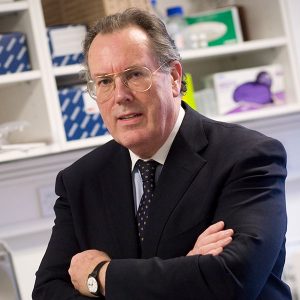
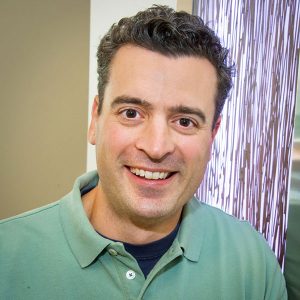
Dr. Hillson earned his Ph.D. in Biophysics from Harvard Medical School. He did his postdoctoral work in Developmental (Micro)Biology at Stanford University School of Medicine. Dr. Hillson's work has spanned the realms of the private (notably as co-founder/Chief Scientific Officer at TeselaGen) and public biotechnology sectors. As Department Head of BioDesign within the Biological Systems & Engineering Division, Dr. Hillson leads scientists and engineers within Lawrence Berkeley National Laboratory whose domain expertise spans synthetic biology, metabolic engineering, microbiology, microbial communities, software engineering, and laboratory automation engineering. As overall Principal Investigator of the U.S. DOE Agile Biofoundry, Dr. Hillson leads scientists/engineers across 8 U.S. DOE National Labs towards the development of a public infrastructure that enables the private sector to reduce the cost and accelerate bioprocess commercialization timelines. This infrastructure complements discovery engines (such as the Joint Genome Institute, to which Dr. Hillson also contributes).
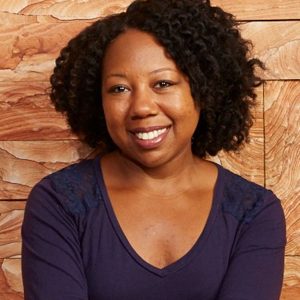
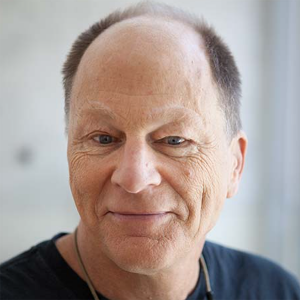
Dr. John Glass is a Professor and leader of the J. Craig Venter Institute (JCVI) Synthetic Biology and Bioenergy Group. His expertise is in molecular biology, microbial pathogenesis, RNA virology, and microbial genomics. Glass is part of the Venter Institute team that created the first bacterial cell with a chemically synthesized genome and a bacterial cell with a synthetic genome encoding only the essential gene set needed for life. In reaching this milestone the Venter Institute scientists developed the fundamental techniques of the new field of synthetic genomics including genome transplantation and genome assembly. Glass was also leader of the JCVI project that rapidly made synthetic influenza virus vaccine strains in collaboration with Novartis Vaccines and Diagnostics, Inc. and Synthetic Genomics, Inc. At the JCVI he has also led the bacterial outer membrane vesicle based vaccine, genome transplantation, and Mycoplasma genitalium minimal genome projects, and projects studying other mycoplasma and ureaplasma species. Glass and his Venter Institute colleagues are now using synthetic biology and synthetic genomics approaches developed at the JCVI to create cells and organelles with redesigned genomes to make microbes that can produce biofuels, pharmaceuticals, and industrially valuable molecules. Glass is an adjunct faculty member of the University of Maryland at College Park Cellular and Molecular Biology Program, one of the founding members of the Build-A-Cell program to create synthetic cells, and member of the Global Viral Network Scientific Leadership Board.
Prior to joining the JCVI, Glass spent five years in the Infectious Diseases Research Division of the pharmaceutical company Eli Lilly. There he was a member of the hepatitis C virology group and a microbial genomics group (1998-2003). There Glass was part of the Lilly and Vertex Pharmaceuticals Inc. team that developed Incivek, one of the first drugs to cure hepatitis C virus.
Glass earned his undergraduate (Biology) and graduate degrees (Genetics) from the University of North Carolina at Chapel Hill. His Ph.D. work was on RNA virus genetics in the laboratory of Gail Wertz. He was on the faculty and did postdoctoral fellowships in the Microbiology Department of the University of Alabama at Birmingham in polio virology with Casey Morrow and mycoplasma pathogenesis with Gail Cassell (1990-1998). On sabbatical leave in Ellson Chen’s lab at Applied Biosystems, Inc. (1995-1997) he sequenced the genome of Ureaplasma parvum and began his study of bacterial genomics.
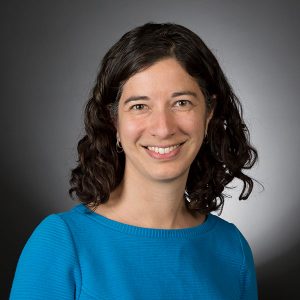
Emma’s research and teaching activities focus on the governance of emerging biotechnologies, especially synthetic biology and biological engineering. She started her research life as a bioscientist, completing a PhD in biochemistry at the University of Cambridge, and then re-trained in the field of science & technology studies (STS) at the University of Edinburgh and Harvard’s Kennedy School of Government. Her current faculty position at Arizona State University is a joint appointment between the School for the Future of Innovation in Society and the School of Biological & Health Systems Engineering, which allows her to straddle the worlds of science policy and bioengineering. Emma has been studying the field of synthetic biology for a decade now, working on a variety of social scientific and interdisciplinary projects in Europe and the US. She has specific research interests in the relationship between engineering and biology, and in the standards and infrastructures (physical, digital, social) being designed to support the development of this field. She sees standards and infrastructures as tools of governance, and is interested in identifying the values, design choices and visions of the future that get built into new infrastructures for biotechnology.
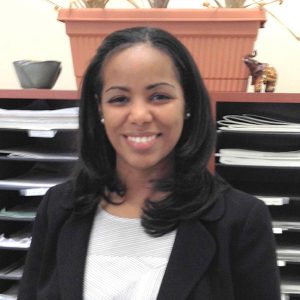
Dr. Lydia M. Contreras is an Associate Professor (and Laurence E. McMakin, Jr. Centennial Fellow) of Chemical Engineering at the University of Texas-Austin; she is also a member of the Institute of Cell and Molecular Biology. She teaches Introduction to Chemical Engineering Computing, Thermodynamics, Introduction to Chemical Engineering Analysis, and Fundamental and Applications of Cellular Regulation. Dr. Contreras obtained a B.S.E. in Chemical Engineering from Princeton University, where she graduated Cum Laude. She completed her PhD in Chemical Engineering from Cornell University, focusing on engineering bacterial cells for improved production of therapeutic proteins. As a postdoctoral associate at the Wadsworth Center (New York State Department of Health), she focused on understanding mechanisms of infection in pathogenic bacteria. She began her career at the University of Texas-Austin in 2011, where she leads a research team focused on RNA biochemistry to study gene regulation mechanisms associated with stress-responses for applications in health and biotechnology. She has received several academic, teaching and service awards including: Biotechnology and Bioengineering Daniel I.C. Wang Award, Department of Thrust Reduction Agency (DTRA) Young Investigator, Airforce Office of Scientific Research Young Investigator, NSF CAREER, Health and Environmental Institute (HEI) Walter E. Rosenblith New Investigator, Norman Hackerman Advanced Research Program (NHARP) Early Career, Society of Hispanic Professional Engineers (SHPE) Young Investigator Award, and an Innovative Early-Career Frontiers of Engineering Educator. She lives in Austin, Tx with her husband Chris and is a proud mom to boy-girl twins.
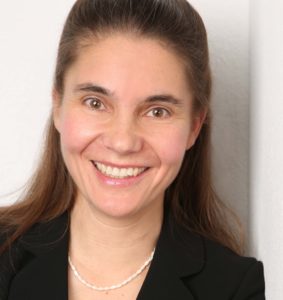
Ute Galm is a molecular microbiologist with 10+ years of experience in strain engineering, synthetic biology, and industrial biotechnology and is the Vice President of Enzyme and Strain Development at Curie Co. After more than a decade in R&D and product development, Ute believes it is critical to wisely use what nature provides to us in the development of sustainable solutions to protect humanity and to preserve our planet. Before joining Curie Co, Ute was an Associate Director at Zymergen, a company that integrates automation, machine learning, and genomics to rapidly accelerate the pace of scientific advancement. Prior to joining Zymergen, Ute worked as a scientist and group leader at Dow AgroSciences on the development of fermentation derived insecticide and fungicide products. She graduated from the University of Tuebingen, Germany with a PhD degree in Pharmaceutical Biology and received her postdoctoral training at the University of Wisconsin at Madison. Ute is passionate about all aspects of using biology to develop sustainable solutions for human health and other market applications. Ute can be reached at ute.galm@curieco.com.
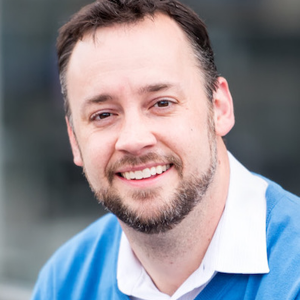
James Diggans is Director, Data Science and Biosecurity for Twist Bioscience, a DNA synthesis company based in San Francisco, CA. He holds a PhD from George Mason University in Computational Biology and Bioinformatics and has worked in target discovery, molecular diagnostic development and biodefense including five years leading the computational biology group at the MITRE Corporation. His research has included methods for efficient detection of biological weapons release, machine learning-based cancer diagnosis, and novel algorithmic approaches to discerning intent in oligonucleotide-length DNA synthesis requests. At Twist, his group builds cloud-based bioinformatics systems for effective biosecurity screening and analysis of next generation sequencing data to power silicon-based DNA synthesis at record scale.
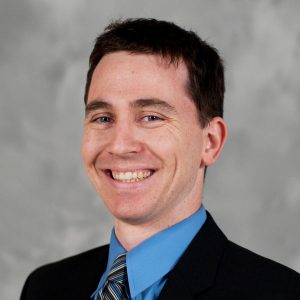
Mark received a B.S. in chemical engineering from the University of Notre Dame in 2002 and a Ph.D. in Chemical Engineering from MIT in 2007. He also did postdoctoral work at the Broad Institute from 2007-2009. At Georgia Tech, Mark’s work spans synthetic and systems biology, and often includes work at the intersection of those two fields. His main Engineering Biology focus is on the development of low-cost, low-resource diagnostics.
